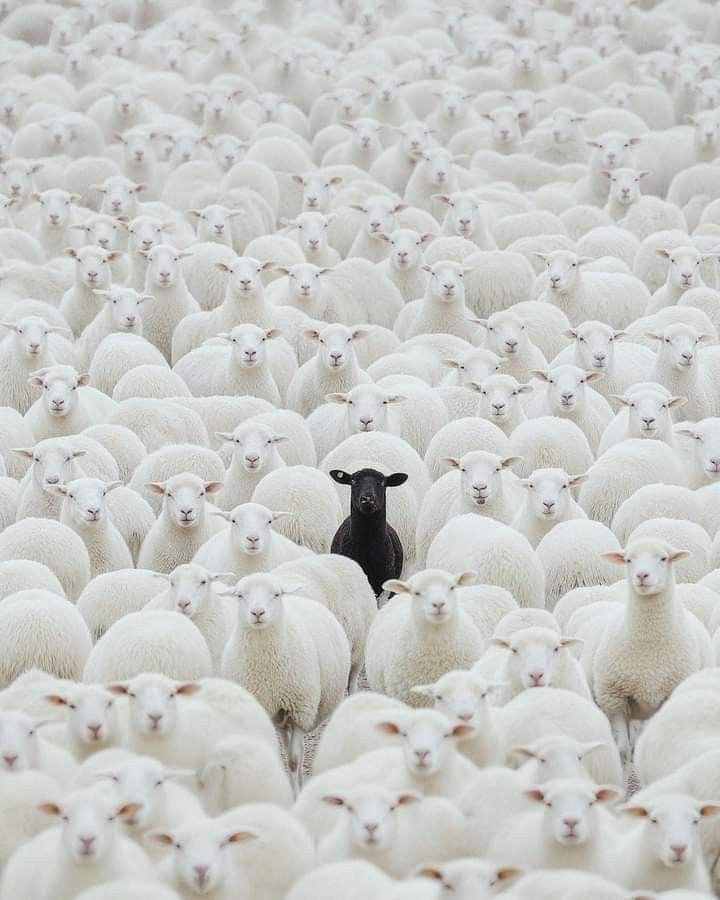“I am no cheap thief, I want the world or nothing at all.”
Somewhere along the way, we were told that the right choice is the practical one.
That blending is is smart, avoiding attention is wise. In order to stand out you should have a reason— a birthday, an event, something in particular. To be arrestingly oneself needs a justifiable explanation, and is rarely accepted otherwise.
We hear it every day: “That’s not very practical.” “Be sensible.” “It’s just easier this way.”
What we rarely acknowledge is how deeply this mindset has shaped not only what we wear, but in fact, how we allow ourselves to live.
In prioritizing practicality, we are allowing the erosion of our individuality.
We dress for ease, not for expression. We mute our preferences under the guise of cultivating “good taste”. How rude we are to ourselves!
We fail to see something essential: in choosing practicality over expression, we are erasing ourselves.
Humans are naturally inclined to avoid risk, a phenomenon known as loss aversion.
First studied by Daniel Kahneman and Amos Tversky, this concept explains why people tend to fear losses more than they value gains. When applied to personal style, it suggests that we are more likely to default to the “safe choice” not because we prefer it, but because it carries less perceived risk.
A study published in the Journal of Consumer Research found that people gravitate toward neutral, practical clothing when they feel uncertain, or fear being socially exposed. When subjects were asked to choose between an unconventional, expressive outfit and a practical, neutral one, the majority chose the practical option— unless they had recently been primed with a sense of personal power. This suggests that the urge to dress sensibly isn’t always due to aesthetic preference— but rather, catered towards what we don’t want to feel.
Therefore standing out requires the individual to consciously refuse to shrink.
But who, exactly, decides what’s in “good taste”?
If we want to get down to brass tacks, practicality isn’t neutral. It’s a form of social conditioning, a way to police the unruly, the vivid, the independent. The entire concept of “good taste” is more often than not a passive-aggressive form of control— a loud shhhhhhhhhh, both a whisper and a command.
Historically speaking, Minimalism as an aesthetic and archetype has always been associated with power and wealth— it signals the ability to choose restraint. In contrast, highly-personalized people or other nouns, maximalists, have historically been deemed as excessive, indulgent, even childish. Put away your toys and join the rest of the adults!
Consider how we talk about clothing: A white linen suit is sophisticated, where a silver jacket is too much. A black handbag is timeless. A sequined one is unnecessary.
Who cares? Who are we judging ourselves against? It almost knocks the mind right out of one’s body when you realize that there is no show, there is absolutely no one to preform for. It’s just us, it’s just the perception we have of ourselves.
The problem with practicality is that it doesn't announce itself as a limitation. It presents itself as common sense.
Choosing the practical option—whether it’s the “sensible” outfit, the stable job, or the predictable routine— doesn’t feel like a loss in the moment. But the more we make these small, reasonable choices, the more they begin to define our lives.
I have tops in my closet that I bought three years ago, tags still on. I used to think it was a body image conundrum, that I was waiting for some invisible version of myself to appear before I could wear them. But now I wonder— maybe it wasn’t my body holding me back, but my presence.
These tops aren’t just clothes. They are louder, bolder, more attention-grabbing than what I usually wear. And maybe that’s the part that unsettles me. Maybe I knew that the moment I put one on, I would feel as though I was on display— That the quiet, practical choices I’ve built as my default would suddenly be interrupted by something shocking.
And maybe that’s why they’ve remained untouched. Because what happens when we step outside of what’s expected of us? What happens when we make the choice that doesn’t blend in?
This weekend, I’m wearing all of them. Even if all I do is cook a three-course meal for my husband. Because maybe the first step to rejecting the tyranny of practicality isn’t about proving anything to anyone. Maybe the first step is realizing that there is nothing to prove.
Finally, this is not a rejection of utility, nor a denial of necessity. These constructs exist to support us, and it’s essential that they do. My rejection lies within allowing them to define the limits of our lives.
This is my manifesto against the tame, normal life— The life that other’s expect from you, the life handed to you, the life you’ve convinced yourself is good enough. You were created for the significant, unique experience of discovering exactly who you are. Choose beauty over beige, expression over erasure, and self-possession over permission.
Reject the notion of the small, the sensible! Run far, run fast— your arms flailing, screaming at the top of your lungs. Don’t allow the ghosts of your wasted potential to gather at your grave. Do not go quietly, into this good night, set it ablaze, run wildly through the flames.
Practicality may keep the machine running smoothly, but beauty— true, expressive beauty, is what makes our one, precious life, worth living.
With great personal aesthetic,
Alexandra Diana
The Elegance Paradox
An exploration of how the pursuit of elegance leads to over-complication, while true elegance lies in restraint and intuition.
The Pursuit of Identity
I’ve become aware of a curious phenomenon: the extreme desire to be seen as a unique individual, yet defined by a singular word or trend (the office siren, the mob wife, BRAT, demure). It’s an inherent contradiction; you cannot claim individuality while basing your identity on a concept created by someone else. The very definition of these words makes this impossible: to be individualistic, you must first be defined, yet true individuality resists definition entirely.










